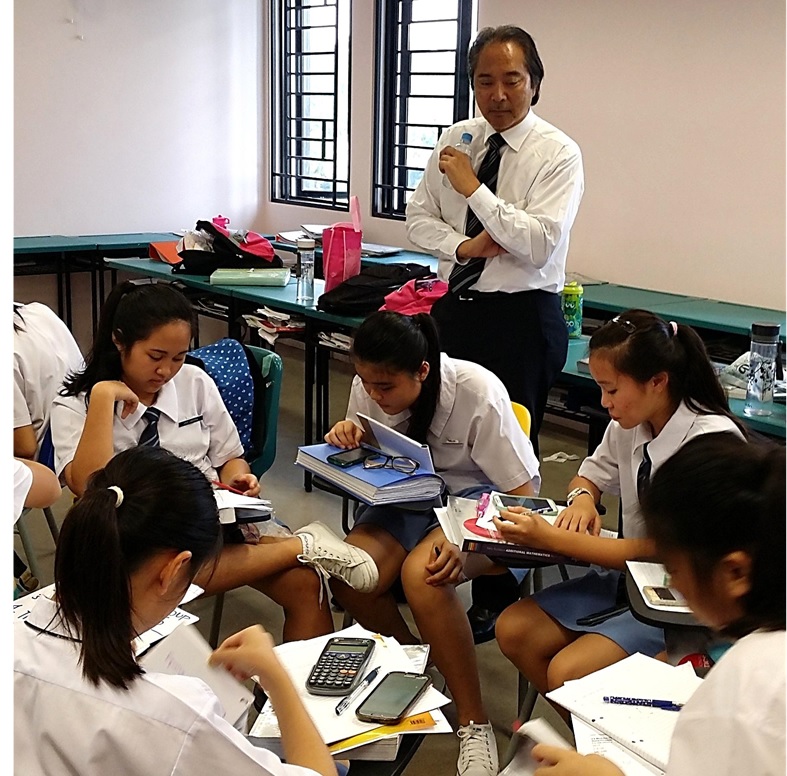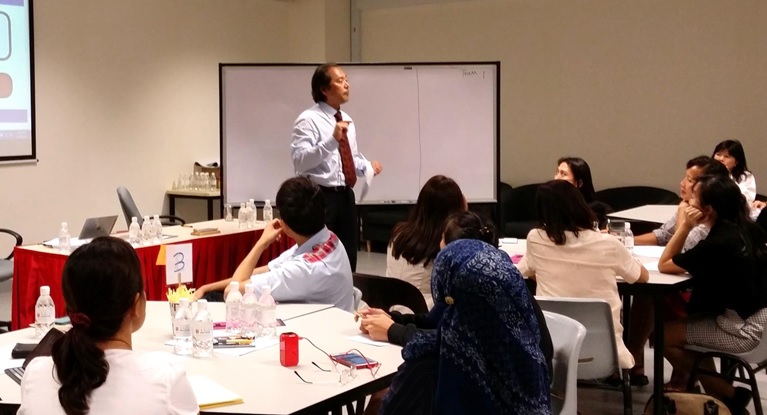Professor Robert K Kamei (21 to 25 April 2014)
Professor Robert K Kamei (21 to 25 April 2014)
AST’s 12th OEIR
Professor Robert K Kamei is the Vice Dean of Education at the Duke-NUS Graduate Medical School Singapore where he oversees the design of training programmes for the learning of various subjects in clinical medicine. He strongly believes that students’ learning would be improved when teachers take on “calculated” risks in their teaching. It is this conviction that has inspired his relentless exploration into new learning approaches that can be applied to students with different learning profiles everywhere. This is evident in Team LEAD—where LEAD stands for Learn, Engage, Apply and Develop—developed by Professor Kamei and his team at Duke-NUS. The learning model is an integrative and collaborative model that deviates from traditional lecture-based education.
For his immense dedication and contribution to education, he has received various accolades and awards. In 2000, he was the recipient of a Fulbright Senior Scholar Award for his endeavours in providing faculty development for academics teaching medicine in Indonesia. Professor Kamei also continues to share his pedagogical knowledge with educators, helping them to implement learning innovations such as Team LEAD to deepen learning and to actively engage students in a truly vibrant classroom environment. He was instrumental in helping Spectra Secondary School adopt the Team LEAD approach which empowered students with the necessary skills to learn collaboratively, building their confidence in the process.
During his attachment, he conducted a lecture to help our educators understand more about Team-based Learning (TBL) and its values, as well as implications for classroom teaching and learning. Teachers learnt about the use of the Team LEAD strategy to carry out TBL using case studies of Singapore schools. Professor Kamei also conducted Master Classes for our teachers, where they learnt about implementing TBL in the classroom. During the classes, he engaged participants in hands-on activities that helped them learn how to craft the problem set in TBL. Teachers appreciated importance of designing good questions or problem sets that could drive learning for their students.
He also met school leaders in a dialogue session where he shared the issues and challenges pertaining to the implementation of TBL, and how these could be overcome. In addition, he also talked about the considerations and processes to integrate TBL into the school-based curriculum, and how TBL complemented and added value to Self-directed Learning and Collaborative Learning.
Through the OEIR programme, Professor Kamei shared valuable learning insights from his perspective. He noted that while Singapore students often have great breadth of knowledge, they could afford to develop a greater confidence in articulating their thoughts and opinions, as well as ask deeper questions to enhance their learning. He also noted that while teachers were convinced that it was essential to teach 21st century skills, most of them reported using traditional instructional methodologies in the classroom which might not encourage the use of 21st century skills. TBL, on the other hand, allows teachers to cover their curriculum while directing students to delve deeper into the content by asking questions and by developing teamwork and communication skills.
Professor Kamei continues to collaborate with teachers to expand their repertoire of teaching strategies up till today. His commitment to explore and to seek effective teaching methods is indeed commendable. With his rich knowledge of pedagogies and selfless spirit of sharing, he continues to influence both our school leaders and teachers to better engage our students with more creative and effective classroom teaching approaches and strategies.



